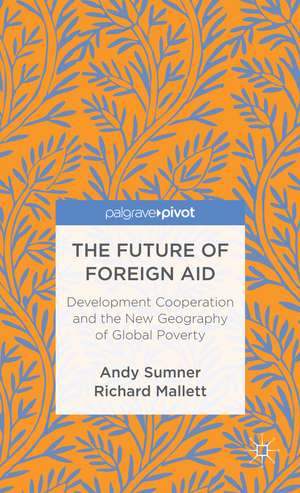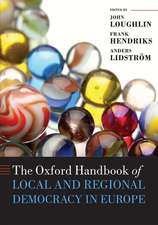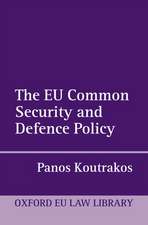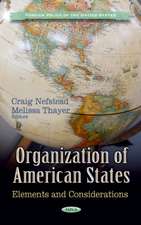The Future of Foreign Aid: Development Cooperation and the New Geography of Global Poverty
Autor A. Sumner, R. Malletten Limba Engleză Hardback – 18 dec 2012
Preț: 482.62 lei
Nou
Puncte Express: 724
Preț estimativ în valută:
92.35€ • 96.62$ • 76.72£
92.35€ • 96.62$ • 76.72£
Carte tipărită la comandă
Livrare economică 03-17 aprilie
Preluare comenzi: 021 569.72.76
Specificații
ISBN-13: 9781137298874
ISBN-10: 1137298871
Pagini: 101
Ilustrații: XII, 101 p.
Dimensiuni: 140 x 216 x 11 mm
Greutate: 0.3 kg
Ediția:2013
Editura: Palgrave Macmillan UK
Colecția Palgrave Pivot
Locul publicării:London, United Kingdom
ISBN-10: 1137298871
Pagini: 101
Ilustrații: XII, 101 p.
Dimensiuni: 140 x 216 x 11 mm
Greutate: 0.3 kg
Ediția:2013
Editura: Palgrave Macmillan UK
Colecția Palgrave Pivot
Locul publicării:London, United Kingdom
Cuprins
Introduction PART I: AID 1.0 1. What is Aid? 2. What is Aid for? 3. What Makes Aid Effective? PART II: AID 2.0 4. A New Vision for Aid 5. What does 'Aid 2.0' Look Like? 6. Conclusions
Notă biografică
Author Andy Sumner: Andy Sumner is Co-director of the newly established King's International Development Institute at King's College London, UK. He was previously a research fellow at the Institute of Development Studies, University of Sussex, UK. Andy is an interdisciplinary development economist with research interests in the fields of global poverty, economic development, and inequality with reference to middle-income countries and emerging economies. He was listed in Foreign Policy's 'Top 100 Global Thinkers' and Devex's '40-under-40 Global Development Leaders' for his work on the 'new bottom billion' about poverty in middle-income countries.Author Richard Mallett: Richard Mallett is a Research Officer at the Overseas Development Institute in London, UK. He holds first-class degrees from University College London and the School of Oriental and African Studies, both in the UK, and is currently working on the Secure Livelihoods Research Consortium a DFID-funded global research programme exploring livelihoods, economic activity, service delivery and processes of state-building in conflict-affected situations.

















